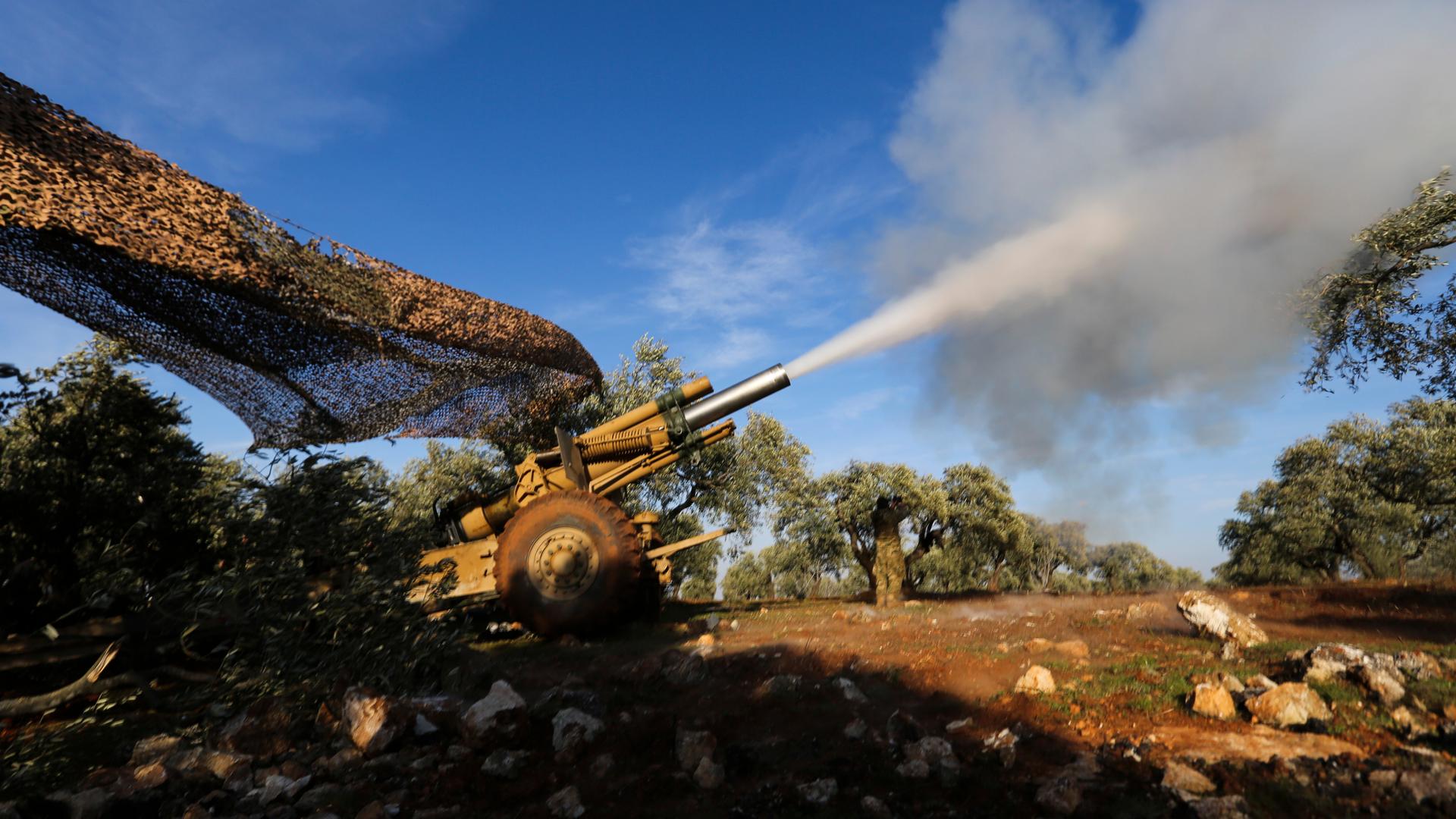The killing of Turkish soldiers, even if perpetrated by the Assad regime, is a watershed moment for Turkey-Russia relations.
Russian planes did not carry out strikes on the area of Idlib where Turkish units sustained aerial bombardments, according to Russia’s Defense Ministry, after 33 Turkish soldiers were killed in a brutal attack by the Moscow-backed Assad regime on Thursday night.
Despite the Russian attempts to whitewash themselves, Turkey-Russia relations will never be the same. February 27 marks the day when Putin’s three year charm offensive in Ankara vanished.
As Moscow decided to impose a military solution in Idlib – and by extension, the entire Syria crisis – I repeatedly said that Washington has a golden opportunity to restore its relations with Ankara. However, most didn’t want to believe in the risk of a direct confrontation in Syria’s Idlib.
Despite the Turkish government announcing the attack was carried out by the Assad regime, the real blame for this heinous attack lies with Russia as is seen in the remarks by the Turkish Defence Ministry stating that the deployment of Turkish troops was coordinated with the Russian side, and despite communication with the Russians the attacks did not stop.
The footage released by the Turkish media shows many tanks, armoured vehicles, and transporters being destroyed by Turkish armed drones, not by Turkish F-16 fighter jets. Moscow is still protecting its Syrian partners despite their provocative act against Turkey – an attitude Ankara would not have expected a month ago.
The Turks thought that Moscow would value its recent cooperation with Turkey on several different spheres. Turkey and Russia are cooperating on energy like the strategic TurkStream Project or the Akkuyu nuclear power plant as well as increasing diplomatic and military engagements such as the procurement of the S-400 air defence systems and the Astana process.
However, Russia has turned a page.
Moscow preferred a military solution in Idlib and Syria over its cooperation with Turkey. This is now well understood in Ankara.
From this day on, Turkish-Russian relations will transform.
But how far Turkey and Russia are driven apart depends on the decision-makers in Ankara and Moscow as well as how the traditional NATO allies of Turkey will react. Will NATO provide substantial support to their member?
If Turkey decides on further escalation which seems more plausible than ever before – and this decision is backed by NATO – Turkey’s geostrategic positioning would shift.
In such a scenario, the Russian bet in Syria and the Middle East would end very badly for Moscow. Russian aggression and expansionism since the illegal annexation of Crimea would begin to reverse.
In fact, in the Ukrainian conflict if western states showed a bit of the same attitude and resistance that Turkey has in Syria, the geostrategic situation would be much different today. At this point in time, there is a big chance for the NATO alliance to re-establish superiority over Russia.
But what would happen if NATO does not support Turkey?
Turkey will continue to use its military power to prevent a humanitarian disaster in Idlib and will go on risking confrontation with the Assad regime’s biggest backer. As the Turkish Defence Minister stated, five helicopters, 23 tanks, 23 artillery, a SA-17 air defence system, a SA-22 air defence system and over 300 regime militants have been neutralised.
This is a clear demonstration of Turkey’s resolve to resist Russia’s military solution and Turkey’s commitment to the UN’s Responsibility to Protect.
Even if Turkey is willing and ready to burden the cost alone, it should be stated clearly that the ignorance of NATO would embolden the aggression of the Assad regime and Russia. This will not only increase costs for Turkey, but it will also force Ankara to rethink once again how much escalation and confrontation it can risk with Moscow.
Another option, however, would be that Moscow might surprisingly come up with an offer Ankara can’t reject by pointing out how Turkey’s allies betrayed them. By doing so, the Russians would achieve a major geopolitical score against the western alliances.
However, little or nothing indicates that Moscow has the cunning to do so. On the contrary, Moscow seems to be trying to squash the Turks in front of the eyes of the NATO alliance.
The attack on Turkish soldiers brings Turkey to a crossroad. Even though the odds for a Turkish-Russian confrontation are high, and most likely bilateral relations won’t be the same again; inaction from NATO combined with smart Russian diplomacy could turn the table into something very different.
Regardless of the outcome, this incident, the aggression of some, the inaction or support of others, and everything that follows afterwards will be engraved in the minds of the Turkish people for a long time to come.
Author: Omer Ozkizilcik
Omer Ozkizilcik is an analyst for the SETA Foundation and is an editor at Suriye Gundemi.
Source










Discussion about this post